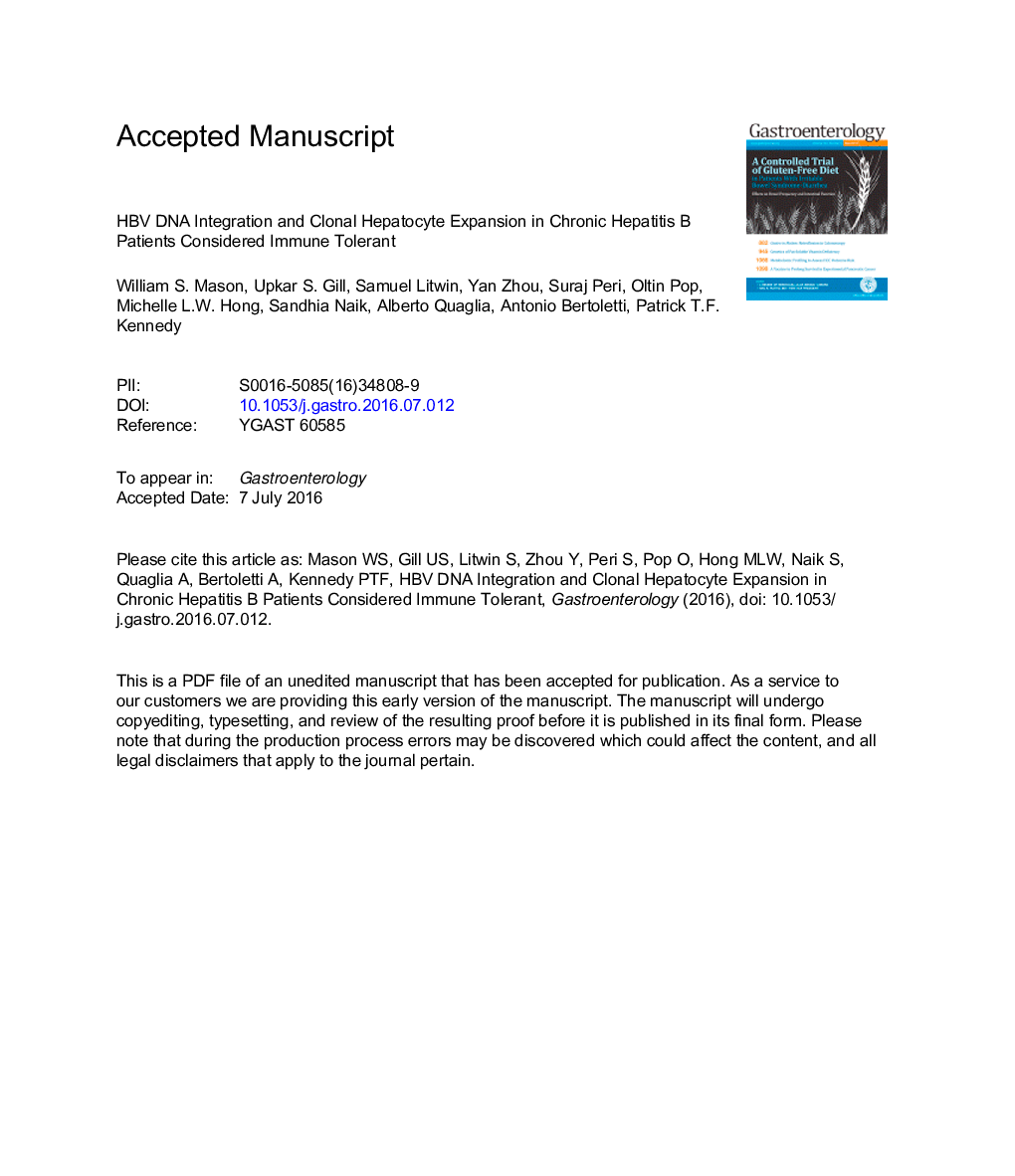| Article ID | Journal | Published Year | Pages | File Type |
|---|---|---|---|---|
| 5658200 | Gastroenterology | 2016 | 65 Pages |
Abstract
We measured HBV-specific T cells, HBV-DNA integration, and clonal hepatocyte expansion in different disease phases of young patients with chronic hepatitis B, with emphasis on the so-called immune-tolerant phase. A high level of HBV-DNA integration and clonal hepatocyte expansion in patients considered immune tolerant indicated that hepatocarcinogenesis could be underway-even in patients with early stage chronic HBV infection. Our findings do not support the concepts that this phase is devoid of markers of disease progression or that an immune response has not been initiated. We propose that this early phase be called a high-replication, low-inflammation stage. The timing of therapeutic interventions to minimize further genetic damage to the hepatocyte population should be reconsidered.
Keywords
HBV replicationEASLAASLDcccDNAHBcAgCHBHBsAgHBeAgALTKBPcovalently closed circular DNAHCCAlanine aminotransferaseHepatitis B surface antigenHepatocyte proliferationAmerican Association for the Study of Liver DiseasesEuropean Association for the Study of the LiverAntiviral immunitykilobase pairschronic hepatitis Bhepatitis B core antigenHBVpolymerase chain reactionPCRhepatitis B virusHepatocellular carcinoma
Related Topics
Health Sciences
Medicine and Dentistry
Gastroenterology
Authors
William S. Mason, Upkar S. Gill, Samuel Litwin, Yan Zhou, Suraj Peri, Oltin Pop, Michelle L.W. Hong, Sandhia Naik, Alberto Quaglia, Antonio Bertoletti, Patrick T.F. Kennedy,
